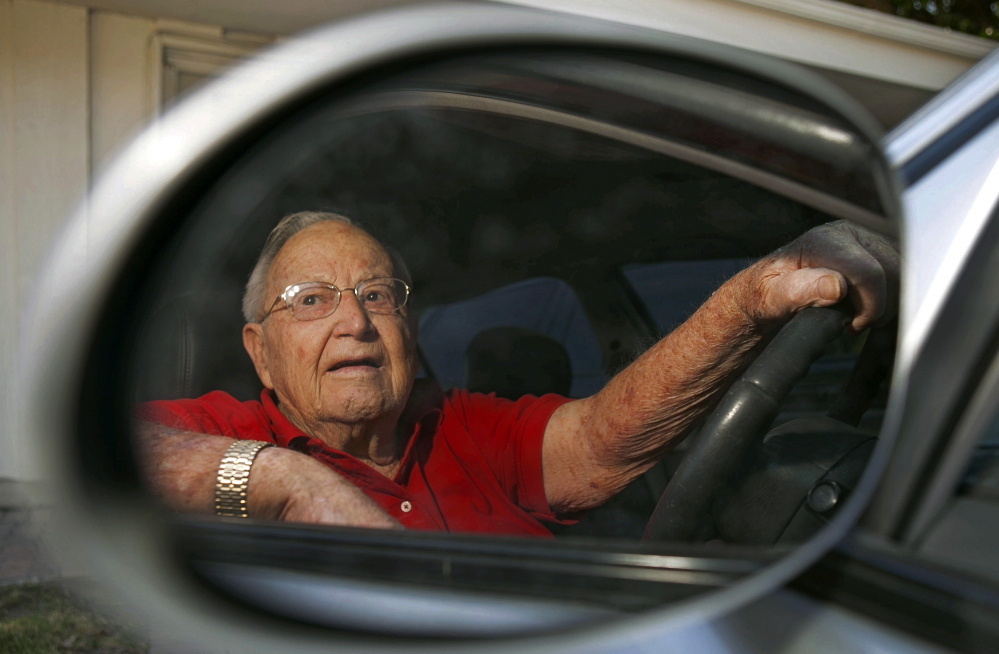Aging baby boomers were supposed to bring a gray-haired danger to U.S. roads, with traffic safety experts predicting years ago that the number of deadly accidents involving older drivers would soar as boomers reached their golden years.
“I remember people talking about 2015 being when we’d really see catastrophic consequences,” said Loren Staplin, a traffic safety consultant for the U.S. Department of Transportation.
Instead, as the first wave of boomers approach their 70th birthdays, older motorists are involved in fewer fatal accidents than a decade ago, even as they hit the road more than previous generations of seniors and hold on to their driver’s licenses longer.
Just as boomers – people born between 1946 and 1964 – made 50 the new 40, they’re transforming the stereotype of the little old lady behind the wheel.
“As a group, they’re fitter to drive than previous generations,” said Jessica Cicchino, a senior research scientist at the Insurance Institute for Highway Safety. “It seems they’re changing what we thought an ‘older driver’ is.”
The dire predictions made in the early 2000s were based on the assumption that fatal collisions involving older people would continue to rise, as they had since the 1970s, and then soar once the outsized post-World War II generation became increasingly frail and less likely to survive serious crashes.
Instead, boomers have remained healthier and stronger than anticipated. They’ve also benefited from unforeseen safety improvements – particularly side airbags and crash-avoidance systems, such as automatic braking and lane-departure warnings – credited with reducing road fatalities for all ages.
But some traffic safety experts say it’s too soon to celebrate. Despite their overall better health and safer vehicles, older drivers remain disproportionately involved in fatal accidents. It’s not so much because their driving deteriorates, experts say. Rather, their more brittle bones and chronic ailments, such as diabetes and heart disease, make them more likely to die from an accident that might leave a younger person with a few broken ribs.
While the number of vehicular fatalities for all age groups fell by 24 percent between 2004 and 2013, drivers 70 and older saw a less impressive 15 percent drop over that same period, Staplin said.
When the grim predictions of boomer doom didn’t play out, “I think a lot of people drew the conclusion that there wasn’t a problem after all,” said Staplin, managing partner of the traffic safety consulting firm TransAnalytics. “But it’s not quite that rosy either.”
Boomers’ sheer numbers remain worrisome, too. Over the next 35 years, the number of Americans 70 and older is expected to reach 64 million, or 16 percent of the population. Moreover, some experts say the demographic bubble’s true impact won’t be felt on the road for another eight or so years. That’s when the oldest boomers will reach their late 70s.
Copy the Story LinkSend questions/comments to the editors.



Success. Please wait for the page to reload. If the page does not reload within 5 seconds, please refresh the page.
Enter your email and password to access comments.
Hi, to comment on stories you must . This profile is in addition to your subscription and website login.
Already have a commenting profile? .
Invalid username/password.
Please check your email to confirm and complete your registration.
Only subscribers are eligible to post comments. Please subscribe or login first for digital access. Here’s why.
Use the form below to reset your password. When you've submitted your account email, we will send an email with a reset code.